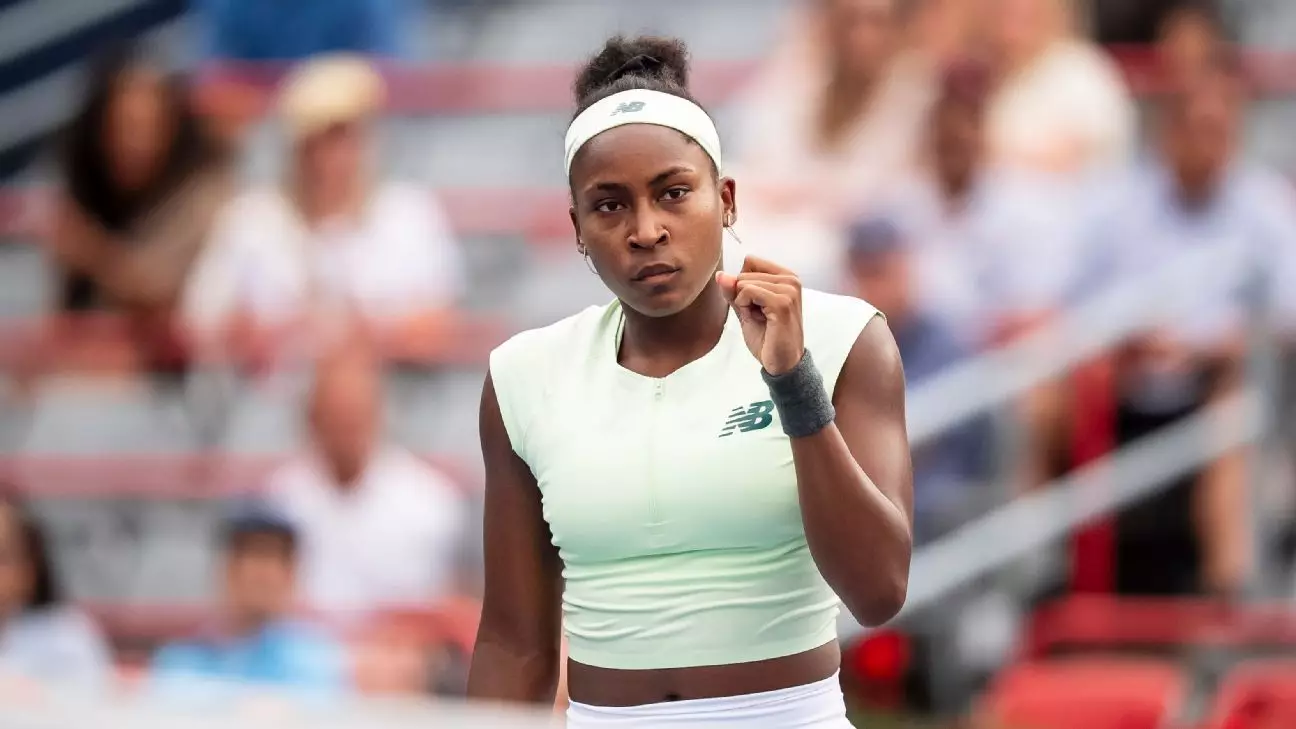Coco Gauff’s recent performance at the National Bank Open exemplifies the extraordinary mental fortitude required in professional tennis. Facing an opponent who served impeccably, Gauff’s ability to overcome her own persistent double-fault issues—adding up to 14 in this match alone—reveals her resilience beyond the physical realm. Her comeback from a set and break deficit underscores a crucial trait that separates good players from great: unwavering persistence. By navigating technical shortcomings, such as serving inconsistency, Gauff demonstrates that mental strength, adaptability, and tactical perseverance often outweigh raw skill. Her victory illuminates a vital lesson: setbacks are not definitive; they are merely hurdles on the road to mastery.
Beyond the Scores: Fostering Growth Through Adversity
The match also signals an important phase in Gauff’s career, emphasizing growth through adversity rather than just victories. Her admission that she only has “one part of her game on a crutch” reveals her self-awareness—an essential trait in any elite athlete. Her comments suggest that her current achievements are merely stepping stones, with her true potential still on the horizon once her full game comes together. The fact that she’s weathered early exits in Berlin and Wimbledon after winning the French Open indicates a player who is actively refining her mental toughness and technical consistency. It’s a reminder that excellence in tennis—like in any competitive pursuit—is an ongoing journey, and setbacks are often prelude to breakthroughs.
The Road Ahead: Champion in the Making
Gauff’s upcoming match against Victoria Mboko symbolizes the new generation of talent eager to challenge established stars. Mboko’s impressive resilience, battling through a tough match to secure her spot, mirrors Gauff’s own journey. Both players embody youthful determination, an energy that can ignite their careers further. While Gauff’s current form may have flaws, it is precisely these shortfalls that serve as catalysts for her evolution. Her capacity to rally from difficult positions suggests she possesses the mental steroids necessary for sustained success. If she can channel her frustrations into focused improvement, her trajectory points toward a future where consistency and confidence will define her legacy.
The Larger Perspective: A Changing Landscape of Tennis
Gauff’s performance is also a microcosm of a broader shift in tennis, where mental resilience, strategic evolution, and emotional maturity are becoming as critical as technical prowess. Her struggles and eventual triumph exemplify a sport where psychological endurance can turn the tide against technically superior opponents. The emerging players like Mboko, Kostyuk, and Yastremska signal a fresh, competitive era, demanding athletes to be versatile, mentally robust, and adaptable. Gauff’s ongoing development is thus not just about personal growth but part of a larger narrative: sports are increasingly a test of internal strength as well as external skill. Her journey underscores a universal truth—true champions aren’t made solely in moments of victory but in their ability to persist through uncertainty and setbacks.

